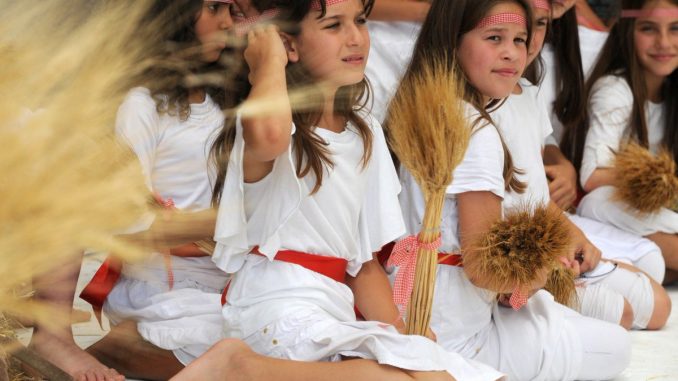
Shavuot, which Jews celebrate in late May or early June, is a very important religious holiday. It is one of the three pilgrimage holidays, along with Passover and the Festival of Tabernacles. Shavuot commemorates the giving of the Torah to the sons of Israel, when they gathered on Mount Sinai to receive the Ten Commandments, although this reference is not explicitly mentioned in the Torah.
Shavuot marks the end of the “Omer” holiday, which is also associated with the grain harvest season in ancient Palestine, as it was the first day that fruit or wheat and barley (pachorim) could be brought to Solomon’s Temple in Jerusalem.
On this holiday, Jews eat many foods derived from dairy products, such as cheese, pancakes and milk, young children begin to learn Hebrew, and psalms are recited during prayer, as many stories confirm that the prophet David was born and died on Shavuot. He was buried on Mount Zion, to which Jews make pilgrimages, lighting candles to honor the memory of the deceased, begging God to bring them mercy, comfort and tranquility in the afterlife. On this occasion, houses and temples are decorated with trees and flowers.
Shavuot means weeks, as it comes seven weeks after the Jewish Passover, according to the stories. Celebrated for two days, the Kabbalah masters consider this day as a wedding in which God married the children of Israel and gave them the Torah.
While non-religious Jews go to parks to celebrate, religious Jews insist on reciting long prayers in synagogues around the world and pray at the Wailing Wall, called the Buraq Wall by Muslims, where disputes erupt between them and the Palestinians. Muslims view the Jews’ insistence on performing their rituals on this occasion in the Al-Aqsa Mosque as an insult to them and a desire to Judaize Jerusalem.

Be the first to comment